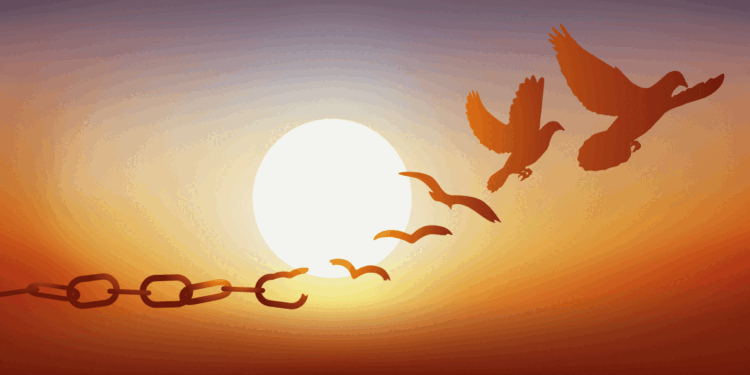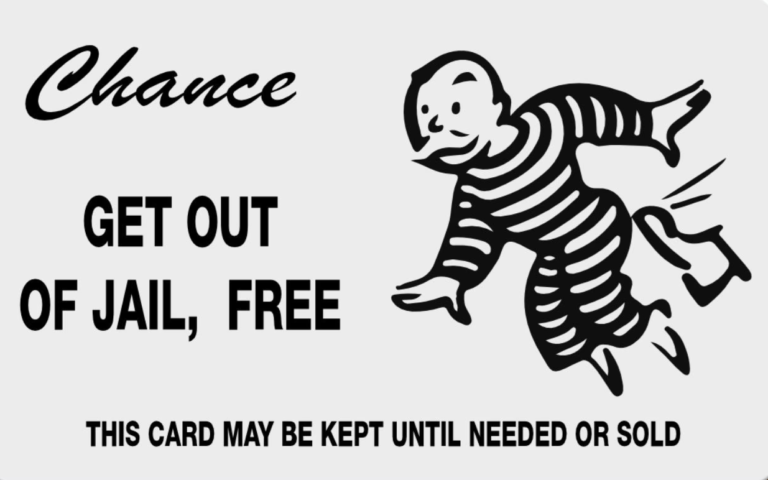Are you Ready for True Freedom?

Everyone speaks of it. Some people yearn for it; some people might even be willing to sacrifice their lives for it. But how many of us really know what it is? What are we speaking about? Freedom. Much has been written about it, but it still seems to elude us in many ways. Is it real or is it just, as we tend to say today, “fake news”?
Freedom has been defined in both negative and positive terms. In negative terms, it refers to freedom from being restricted, controlled, coerced or oppressed by external authorities. In positive terms, it refers to freedom to act in society to pursue one’s goals. Combining these two ideals into a common definition, freedom may be summarized as the ability to do as one desires provided that one fulfills all that one has agreed to do and provided that one does not encroach on other persons or their property.
Perhaps more than any other single nation in the history of the world, the United States of America enshrined and protected these particular ideals of freedom in its founding documents. For example, the First Amendment to the United States Constitution barred Congress from ever passing a law that would restrict or limit freedom of religion, freedom of speech (which includes freedom of association), freedom of the press, freedom of assembly, and freedom to petition government for a redress of grievances. Much of this was summed up rather nicely by Emma Lazarus in her famous poem “The New Colossus” where she writes on behalf of the Statue of Liberty, “Give me your tired, your poor, Your huddled masses yearning to breathe free, The wretched refuse of your teeming shore.”
What about us, and what about now? Pesach is the time of our freedom, zeman cheruteinu. But what does this mean? Are we free today? If we are, in what way are we free and by what mechanism did we become free? If we are not free, why aren’t we free? What is preventing us from being free?
We all know the verse, “And Hashem said to Moshe, Go to Pharaoh and say to him, Thus said Hashem, Let My people go and they will serve Me” (Shemot 9:1) Hashem wanted B’nei Yisrael released from the bondage and slavery of Egypt in order to serve Him. Did the Jewish people become free as a result of leaving Egypt or did they become free only after they coupled that departure with the service of Hashem?
Our Sages of blessed memory taught, “And the tablets were the work of God, and the writing was the writing of God, engraved [charut] upon the tablets. Don’t read charut [engraved] but cherut [freedom], because the only free person is someone who occupies himself with the study of the Torah” (Avot 6:2). Therefore, it would seem that being sent away from Egypt did not result in the freedom of the Jewish People as we may have thought. Only after they arrived at Har Sinai and learned the Torah from Moshe Rabbeinu were they were able to truly serve Hashem and hence, become a free people. Like we say during Maariv, “And [He] brought His nation Yisrael from their midst to eternal freedom [cherut].”
What about us today? If we occupy ourselves with the study of Torah, do we become free?
Which verse did Chazal quote in Avos 6:2 when referring to the two tablets? They were quoting Shemot 32:16, which specifically referred to the first set of tablets, not to the second set. This first set of tablets was wholly the work of God (and not the product of a partnership between God and Moshe), but they were destroyed only three verses later after Moshe witnessed the people dancing around the golden calf. He got angry, he threw the tablets out of his hands and he broke them at the foot of the mountain. So the tablets to which Chazal were referring broke and were replaced by a second set of tablets that were the work of Moshe while their writing remained the work of God. Everything that Chazal say is measured carefully. Why did they specifically refer to the first set of tablets and not to the second set?
The implication is very clear: the Torah of the first tablets gives freedom; the Torah of the second tablets does not. Shocking? Perhaps, but this is what Chazal said. Let us understand.
B’nei Yisrael had reached such a level at Har Sinai that they no longer were contaminated by the pollution of the Sitra Achra. They had gone through so many cycles of death and resurrection at the giving of the Torah that they had purified themselves literally from the pollution of the Primordial Serpent to such an extent that they reached the level of Adam haRishon before the sin. That meant that the Yetzer Ra (evil inclination) was no longer within them. It was now only external to them in the same way it was external to Adam before he accepted the counsel of the Serpent. It was during this short period of time, when Moshe Rabbeinu was on the mountain for the first 40 days receiving the first tablets from Hashem, that the nation was truly free.
In the negative sense of the term as explained above, what were they free from? They were free from being ruled and controlled by the Sitra Achra. They were free from sin. They were free from the pollution that was injected into them by the Serpent. They were free from all bodily desires and appetites. They were like angels. And in the positive sense of the term, what were they free to do? They were free to serve Hashem without restriction, without impediment and without barriers.
And it was in this state that they were worthy of tablets that were wholly the work of God. Both the soul of the tablets, i.e. the writing, and the body, i.e. the tablets themselves, were the work of God. These tablets came from an exceedingly high world where all the gates are open and all the hidden secrets are revealed. It was this Torah, the Torah of the World of Atzilut, which results in freedom. It is a Torah of Freedom because it is above the Sitra Achra and out of its reach.
But when B’nei Yisrael accepted the advice of the Serpent (even as Adam and Chavah did in Gan Eden), they fell from their lofty place, they lost their freedom, became re-infected with the pollution of the Serpent, internalized the Yetzer Ra and lost their ability to access the Torah from the World of Atzilut, the Torah of Mashiach, the Hidden Light of the Seven Days of Creation. They had freedom, it was within their grasp, but they lost it. And this is the point—neither they nor we have regained it since.
With all of the Torah we learn, with all of the mitzvot we perform, with all of the charity we give, we are still not really free. You could say that to the extent that our souls rule over our bodies, to that extent we are free. But if we do not control what we look at, if we do not control what we eat, if we do not control how we react to life’s challenges when they catch us by surprise, etc., then we are not free. We are prisoners to our body, a body from a lower world, a body carved out of this world, a body analogous to the tablets that Moshe hewed out. What we really need to acquire in order to attain freedom is the same thing that our ancestors acquired when they attained freedom—a new body, uncontaminated by the pollution of the Primordial Serpent, a body capable of entering Gan Eden.
This is why we pray three times a day, “Blow the great shofar for our freedom…” If we had it, we wouldn’t need to pray for it, would we? May we merit being clothed in a body like the first set of tablets, hewn out by God Himself!






